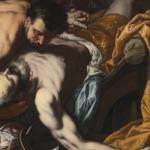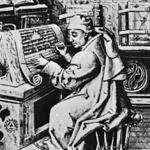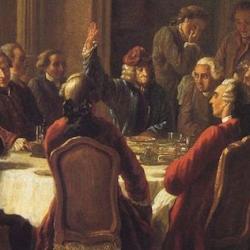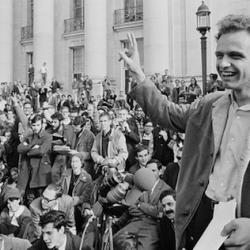“In the summer of 1789, absolute monarchy and aristocratic authority were overthrown forever in the most powerful kingdom,” writes James Billington in Fire in the Minds of Men (20).
If something happens, it must be possible. Just so: The French Revolution was “the hard fact that gave birth to the modern belief that secular revolution is historically possible” (20-1). Christendom, it seemed, could be overthrown. Christ’s kingdom could be reversed.
At first, the overthrow of Louis XVI led to chaos in Paris. Marquis de Lafayette arrived on a literal white horse to put things in order. Fresh from the American war, Lafayette attempted to put American ideals into practice: “He presented a key to the Bastille to Washington, used American rhetoric to help draft the Declaration of the Rights of Man and Citizen, and lent dignity as head of the new national guard to the fateful march on Versailles on October 5” (21).
It was a short-lived settlement. Across the Channel, Burke denounced “Fayettism” as one of a “rabble of systems.” From the revolutionary side, Babeuf “Excoriated Lafayette as a conceited and antidemocratic brake on the revolutionary process” (21).
When the king attempted to flee Paris in the summer of 1791, it was over: “Revolutionary France formally proclaimed a republic in August 1792; massacred, 1,100 alleged domestic foes in Paris in September, and publicly guillotined King Louis XVI in January 1793” (21-2).
French politics polarized around the issue of violence. Those who wanted a moderate constitutional revolution were on the “right” of the National Assembly. Those who pressed to “finish the revolution” were seated on the left.
But the bare facts of the seating arrangement weren’t the whole story. Billington writes, “The subsequence equation of the left with virtue dramatized revolutionary defiance of Christian tradition, which had always represented those on the right hand of God as saved and those on the left as damned” (22).
Political became polarized: Between those who wanted to defend some remnants of Christendom, and those who wanted to undermine and invert it. The revolutionaries self-consciously sought the triumph of the goats over the sheep.











